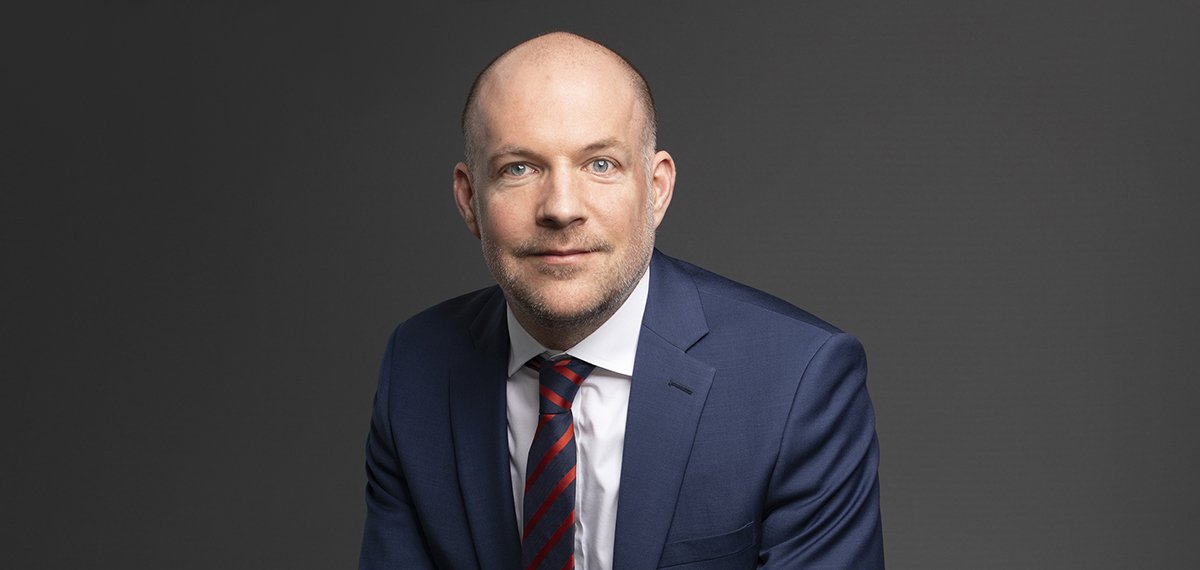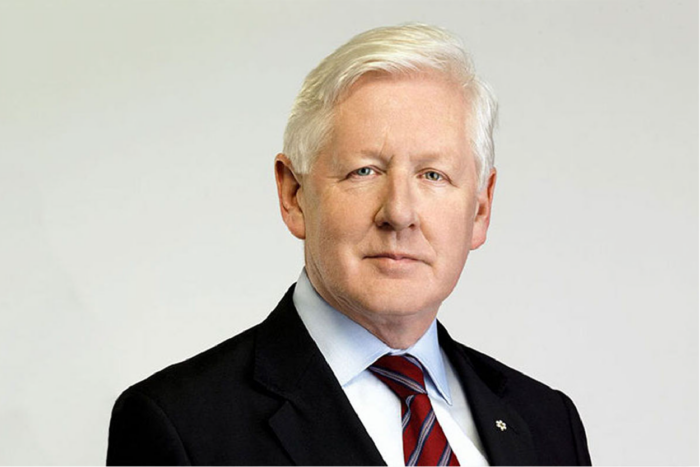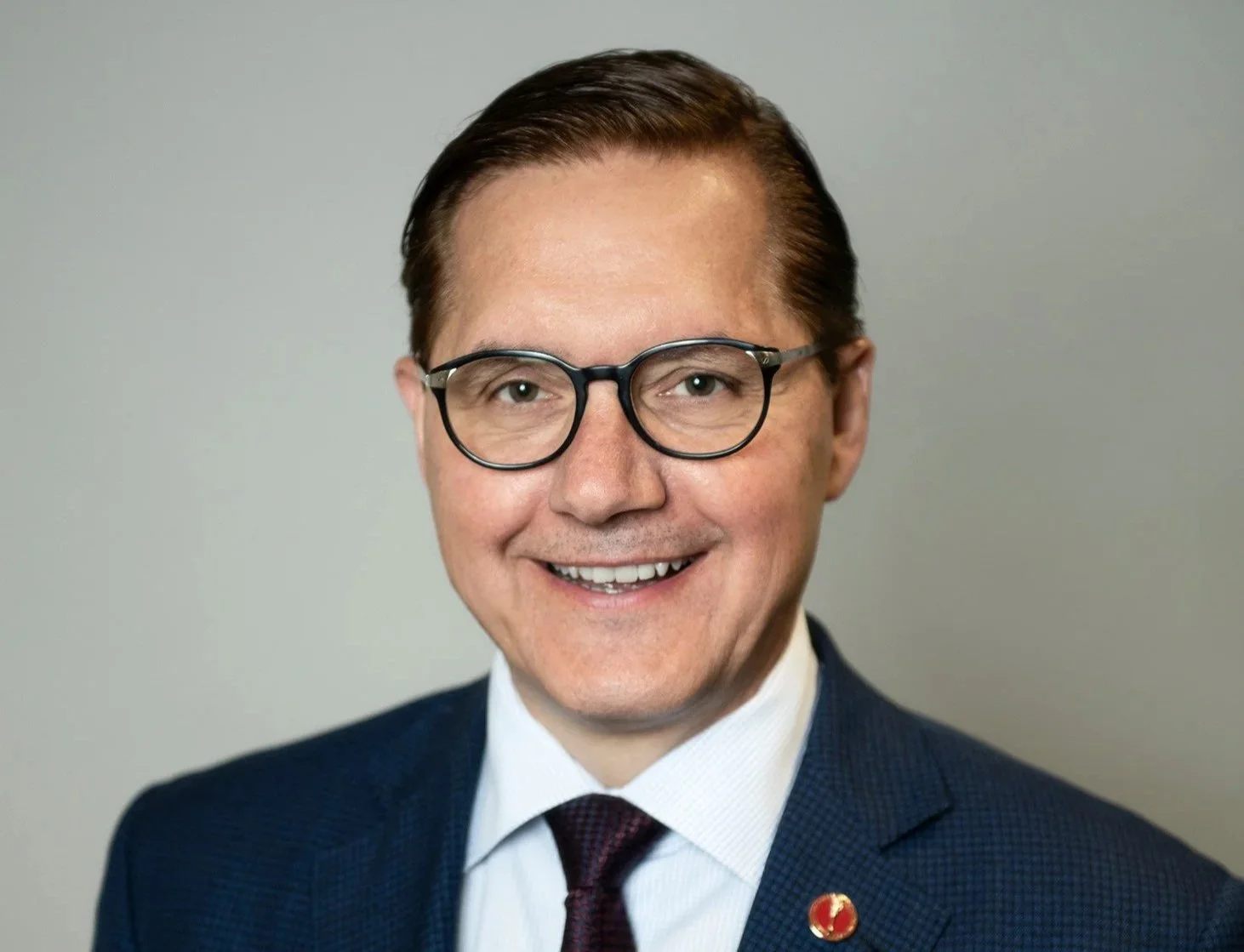‘The biggest national project we have is our healthcare system’
As Canada ramps up efforts to strengthen its sovereignty through major nation-building initiatives, veteran health advocate Russell Williams argues that healthcare must be at the heart of the agenda. In a wide-ranging conversation, Williams calls on governments and industry to treat healthcare as Canada’s defining national project — one essential to the country’s future success.
Russell Williams, chair of BioCanRx, is a former member of the Quebec National Assembly and veteran executive leader in the healthcare, life sciences and biotech sectors. / MEANS & WAYS PHOTO
As the Canadian government and businesses focus on nation building to combat the threat to the country’s sovereignty, healthcare needs to be front and centre, says veteran health advocate Russell Williams.
“As we're thinking about investing in some of those big national projects, I think the biggest national project we have, one that defines us as Canadians, is our healthcare system. It's urgent to move now, and I believe that if this question isn’t dealt with at the same time as other national projects, we will not be as successful as we hope to be,” Williams said.
Fresh into retirement and reflecting on a career that spanned elected politics, health advocacy and leadership positions in the life sciences and biotech sectors, Williams sat down for a Q&A — sharing insights, lessons and hopes for the future of healthcare in Canada. Having officially stepped down from his role as Senior Vice President, Mission at Diabetes Canada, Williams now turns his focus to his leadership as Chair of the Board at BioCanRx, a position he assumed in January 2025 after serving on the Board since 2018.
In this conversation, he reflects on his 15 years in the Québec National Assembly, his time as president of Innovative Medicines Canada, and his efforts to build coalitions across sectors to champion ethical innovation, equitable access, and evidence-based public policy. Williams’ reflections offer a candid, hopeful, and at times urgent call for Canada to treat healthcare not as a cost — but as the country’s most important national project.
The Q&A was edited for length and clarity.
M&W: You were a member of the Quebec National Assembly for 15 years, representing the riding of Nelligan. What initially drew you to run?
RW: There was an opportunity that came up in a very charged time about linguistic politics. And I decided that as much as I was against what the government had done on language, I thought I could make change from within as I had worked with the government to improve English language health and social services in the past. The first was a difficult election, and then I established trust in my constituency and built a strong reputation for social system improvements. The first six years involved two elections and two referendums. So very energetic, dynamic and emotional times. The future of our country was being challenged while at the same time we needed to focus on day-to-day business.
MW: What kept you coming back, and what did you enjoy about that work?
RW: Holding elected office is a very honourable profession, and I'm proud of that work. Some of my other work includes bringing voice to people who didn't have a voice, whether it was foster families, young kids with needing cochlear implants, gambling laws and control, palliative care, or a new CEGEP — all of these involved building a representative coalition of passionate and skilled advocates with clear objectives and a relentless action plan. At the same time the future of Canada and Québec’s role was front and centre of all debates. The future of the country was on the table at the time. I am fortunate to have played a small part in these pivotal issues and national questions. It was a privilege and was exciting that someone who was born in London, Ont., could be so much a part of discussions about future directions of Quebec.
MW: I'm curious how your time in politics informed your leadership approach in your following pursuits?
RW: Most of my political career was in opposition. You have to lead by influence. Open communications, transparency and media attention are important tools. You have to lead by collaborative positioning. You have to build momentum with others. And it means compromise.
MW: You were the president of Innovative Medicines Canada for 12 years. What are your biggest achievements from your time there? And what are you most proud of?
RW: I'm very proud of laws and regulations we changed, some of the IP rules, data protection. We improved the way governments see the industry. We created partnerships, joined forces on drug shortages. We improved the quality of care by beginning to improve better access to innovative medicines. But I think the thing that I'm most proud of is we empowered many patients to have a greater voice, to be able to advocate for better access, to express why innovative medicines work and why they're necessary. And I think, in a small way, we have helped some governments see a bit more that an investment in healthcare is, in fact, that, versus an expense.
MW: The Business Ethics for APEC SMEs Initiative is the world's largest public-private partnership to strengthen ethical business practices in the medical device and biopharmaceutical sectors. I understand you played a large role in leading that. Why was this necessary? How has Canada benefited from it?
RW: Too often, in a complex world of life sciences and healthcare, the various sectors don't talk to each other. One of the things we wanted to do is bring people closer together, to build mutual understanding and trust. We started to bring doctors, nurses, pharmacists, industry, hospitals, patients, together, and talk through issues of ethics and what we think is important. What we discovered was we have a lot in common. I believe if we're going to continue to work to deliver high quality health care, while partnering with the private sector, whether it's in Canada, or anywhere in the world, we have to ensure ethics are at the highest standards.
We are advancing this work throughout the entire APEC region, and I think we've actually improved health care, because without the highest standards of ethics, there is no innovation, there is no real research, there is no discovery that we can count on. I believe that the trust we have built in the APEC initiative helps to develop and ensure excellence and quality.
MW: You finished your career at Diabetes Canada. What are your biggest achievements there?
RW: I'm very proud that we have increased the understanding about diabetes and it's much more part of the public policy discussion. Governments are beginning to make it more of a priority as they see the extent of the challenge and the benefit of effective intervention both in health outcomes and costs. We now have a Diabetes Framework for the country tabled by the government to guide future directions. At the same time, practical improvements and improved access has occurred. There is still more to do. Each province does it a bit differently, but there have been real improvements on it.
MW: What advice would you give to young professionals on how to navigate and lead within the public policy landscape?
RW: That’s a tough question. One is listen and build coalitions. One of my first mentors said, “You're as good as your network,” and you have to keep building coalitions and network to make sure that you can make change happen. Two is you should make sure that you're not solely committed to only one policy — you should be open to listening to other perspectives. Don't advocate without evidence. Make sure that you know what you're talking about. Seek out diversity of opinion and build on common ground. Good data is essential.
M&W: Many have described you as a proponent of diversity, equity and inclusion and a strong ally. Why is that important to you?
RW: Ultimately, public policy should reflect the society that it serves. Treating everybody the same isn't the way to do it. If there are barriers, we must alleviate them. Inclusion and diversity should be a basic principle not an add-on. I am extremely proud that I was an ally for many talented, dynamic and inspirational professional women, simply supporting them, giving guidance and maybe opening a few doors. Ultimately, when see the incredible impact these leaders have on society, I am humbled.
RW: How do you feel about businesses moving away from DEI following Donald Trump's election in the States?
RW: We should be embracing as much diversity as we can. That starts with your hiring process. It starts with your board of directors. It starts with your general philosophy. I think back on Diabetes Canada, when you look at high prevalence communities, if you weren't embracing diversity, you're missing many of the communities that are directly affected by diabetes. I think those that move away from it will regret that seriously in the future.
“The thing that I'm most proud of is we empowered many patients to have a greater voice, to be able to advocate for better access, to express why innovative medicines work and why they're necessary. And I think, in a small way, we have helped some governments see a bit more that an investment in healthcare is, in fact that, versus an expense.”
MW: Healthcare wasn't mentioned during the recent election campaign, nor has it been set up as a priority in the Prime Minister's mandate letter or throne speech. What do you think that means for Canada's economic future, and what is the role of business within this context?
RW: I'm a former Quebec politician, and I don't see the federal government running health care. Health care is primarily a provincial responsibility. That being said, the government, whether it was a diabetes framework, or mental health or a number of issues, can and has led the way. When I think about our health care system, I think about what makes us proud. I think about life sciences. I think about innovation and research. If we're nation-building, we have the fundamentals of probably one of the most respected healthcare systems in the world. It has challenges but much of it is working for Canada. If we think about investing in healthcare, not just as an expense but investing in research, investing in better access to innovative medicines and vaccines and medical devices, investing in building manufacturing capacity, I believe we will see many positive results.
MW: What is keeping you up at night from a public policy perspective at the moment?
RW: Can we seize this opportunity to bring researchers to Canada, to better support the researchers that we have in Canada? Can we strategically support the companies that are investing in research and innovation? Can we make sure that we can get better access to medicines and devices? I think all of that is possible if we want to start to work on it. So that keeps me up at night but it excites me at the same time. For instance, as Chair of BioCanRx, I see the incredible potential of immune oncology research. We must build on this. Canada could grow its leadership in this area by investing more, including in manufacturing capacity. There is a real opportunity, I think, to advance research, to advance innovation, to advance life sciences. It’s urgent to move now.






